Sunday, 17th–We had a pretty stiff introduction to our first night on a river boat, for it snowed in the night. My bunk-mate, James Fossett, and I lay down on the deck with our heads to the smoke-stack instead of our feet, in order to avoid lying with our heads down hill. By morning we were covered with snow, about two inches deep. At 8 a. m. we landed at Montrose, where two of our companies were transferred from our boat to another boat in order to lighten our boat for the purpose of passing through the rapids just above Keokuk. We reached Keokuk in safety about noon and went on shore to cook some provisions. At dusk we returned to the boats, our company being transferred to another boat which lay at Keokuk all night while the “Jennie Whipple” proceeded down the river.
American Civil War Chronicles
“By morning we were covered with snow, about two inches deep.”–Alexander G. Downing.
November 17, 2021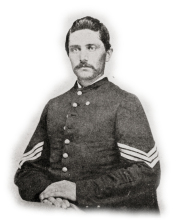
“Where will the Congressmen go with all the hangers on.”—Horatio Nelson Taft
November 17, 2021
SUNDAY 17
Cool, pleasant day, did not go out to church. Wife and the boys went. Julia is still confined to the house and coughs a good deal yet. Took a long walk this evening, brought up at Willards Hotel. Saw Mr Stillson there from Rochester. Hotel very full, in fact the City seems to now be running over now. Where will the Congressmen go with all the hangers on. No News today of any importance.
______
The three diary manuscript volumes, Washington during the Civil War: The Diary of Horatio Nelson Taft, 1861-1865, are available online at The Library of Congress.
John Beauchamp Jones writes about special passports for letter-carriers carrying letters and other things between Confederacy and the North.
November 17, 2021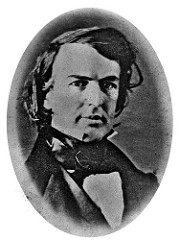
NOVEMBER 17th.—There are also quite a number of letter-carriers obtaining special passports to leave the Confederacy. They charge $1.50 postage to Washington and Maryland, and as much coming hither. They take on the average three hundred letters, and bring as many, besides diverse articles they sell at enormously high prices. Thus they realize $1000 per trip, and make two each month. They furnish the press with Northern journals; but they give no valuable information: at least I have not conversed with any who could furnish it. They seem particularly ignorant of the plans and forces of the enemy. It is my belief that they render as much service to the enemy as to us; and they certainly do obtain passports on the other side.
Gen. Winder and his alien detectives seem to be on peculiar terms of intimacy with some of these men; for they tell me they convey letters for them to Maryland, and deliver them to their families. This is an equivocal business. Why did they not bring their families away before the storm burst upon them?
“But cotton tents will be bad quarters for snowy, freezing weather; and if we do not have better, I fear we shall lose much from disease this winter.”–Letters from Elisha Franklin Paxton.
November 17, 2021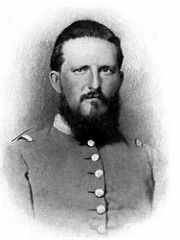
Camp near Winchester, November 17, 1861.
Soldiering for the past week has been a hard business. For two or three days we had cold rains, and the balance of the time very severe winds. The wind is perhaps more severe than the rain, as it makes our outdoor fires very uncomfortable, it being doubtful whether it is best to stand the cold or the smoke. The weather feels now as if the campaign was over and we must soon go into winter quarters. If we get houses, I presume it will be shanties, such as the men can build for themselves out of logs and clapboards. This they could do in a very short time. But cotton tents will be bad quarters for snowy, freezing weather; and if we do not have better, I fear we shall lose much from disease this winter. My health at present is very good, and I think I stand the service as well as any one else in it. Last night I slept very comfortably with the assistance of two sheepskins and five blankets.
Since our arrival here, there has been a very general congregation of officers’ wives at the farm-houses in the neighborhood, and I think it likely to continue until women and children are as common in the camp as blackberries in August. So I have little hope of seeing you here, but think the Yankees will go into winter quarters before long. They will discover that a winter campaign in this part of the sunny South, with the snow a foot deep and ice everywhere, is uncomfortable, and will give us a few months’ rest. I hope then to be able to get a short furlough to see my dear little wife and babies at home.
And now, Love, I will take leave of yon. I sympathize deeply with you in your approaching illness, and hope for your safe and speedy recovery. Remember me kindly to your father, and say that I am very grateful for the assistance which he has given you in my absence.
“The papers contain joyous articles on the Trent affair..,”—William Howard Russell’s Diary.
November 17, 2021
November 17th.–For my sins I went to see a dress parade of the 6th Regular Cavalry early this morning, and underwent a small purgatory from the cold, on a bare plain, whilst the men and officers, with red cheeks and blue noses, mounted on horses with staring coats, marched, trotted, and cantered past. The papers contain joyous articles on the Trent affair, and some have got up an immense amount of learning at a short notice; but I am glad to say we had no discussion in camp. There is scarcely more than one opinion among thinking people in Washington respecting the legality of the act, and the course Great Britain must pursue. All the Foreign Ministers, without exception, have called on Lord Lyons–Russia, France, Italy, Prussia, Denmark. All are of accord. I am not sure whether the important diplomatist who represents the mighty interests of the Hanse Towns has not condescended to admit England has right on her side.
War Diary of Luman Harris Tenney.
November 16, 2021
16th. Theodore surprised me in the morning. Took a ride to Woodland Cemetery. Lizzie and Nettie came to camp. Heard Slade, Riddle and several others in the evening.
Diary of David L. Day.
November 16, 2021
Nov. 16. Here it is the middle of November, and the weather is most delightful. No frosts, but a warm, mellow atmosphere like our Indian summer in October. It is beautiful, indeed; I am charmed with it. While our farmers in New England are putting up and feeding their cattle in barns, the cattle here are luxuriating in white clover, young, sweet and tender enough to suit the most fastidious taste of any of the cattle on a thousand hills. The farmers about here are harvesting their crops of corn and sweet potatoes, some of which are very fine. Some of the boys brought in some egg plants which grow about here. I never saw any before, but am told they are very good, when properly cooked. I am not disposed to doubt it, never having eaten any of them, but I cannot believe they would make good egg nog.
We begin to see a little something of the peculiar institution,—slavery. There are a great many negroes strolling around the camps, most of them runaways, and as Maryland is supposed to be a loyal state, we have no right to take sides and afford them protection. But we have adopted a kind of English neutrality, although not giving them much protection, we give them whatever information they desire. The masters and hunters are frequently here, looking up their boys, as they call them, and we generally manage to put them on the wrong track and then run the boys into other camps, and they run them into the woods.
Our regiment was yesterday inspected and reviewed by Brig. Gen. John G. Foster. We put in our best work, and tried to make the best appearance we could. The general seems to be a man who understands his business. At a single glance he takes a man and his equipments all in; looks at his rifle, passes it back and goes for the next one. He complimented Col. Upton on the good drill and appearance of his regiment, and flattered his vanity a little by telling him that with a little more practice his regiment would be as near regulars as it would be possible to bring a volunteer regiment.
“Our boat is the “Jennie Whipple,” and Company E is stationed on the hurricane deck.”–Alexander G. Downing.
November 16, 2021
Saturday, 16th–Reveille sounded at 2 a. m., and packing our knapsacks, we started at 8 o’clock for the boat down at the levee. Here we stacked our arms and waited until the quartermaster with his detail got the commissariat loaded, putting it upon our boat and the two barges, one on either side. By noon all was ready and we marched on board, some going upon the boat and some upon the barges, and at 2 p. m. left Davenport, bound for St. Louis.
We reached Muscatine about sundown and because there are so many Muscatine people in the regiment, we landed and marched uptown to Main Street. Here we had dress parade for the benefit of the citizens, who turned out in large numbers. Companies A and H are made up of Muscatine boys, while our colonel and quartermaster reside here; besides, Company I is from Louisa county just west of this place. After the parade we marched back to the boats and left at once for Keokuk. Our boat is the “Jennie Whipple,” and Company E is stationed on the hurricane deck.
“Mason & Slidel… were taken from the English Mail Steamer from Cuba to England.”—Horatio Nelson Taft
November 16, 2021
SATURDAY 16
The coldest day yet but no frost, a cold strong wind. The 11th Maine Regt passed through the City, just arrived. Capt Rogers of the 27th called today, brought letter from Doct Barnes enclosing $50.00. The City was thrown into quite an excitement by the news of the arrest of Mason & Slidel. They were taken from the English Mail Steamer from Cuba to England. I have been at home most of the day, have purchased some wood and shoes for the boys, and attended to their lessons in the forenoon. They take to their studies at home very well.
______
The three diary manuscript volumes, Washington during the Civil War: The Diary of Horatio Nelson Taft, 1861-1865, are available online at The Library of Congress.
John Beauchamp Jones writes about corrupt “commercial men” profiting on the conflict.
November 16, 2021
NOVEMBER 16th.—It is sickening to behold the corruption of the commercial men, which so much wounds our afflicted country. There are large merchants here who come over from Baltimore breathing vengeance against the Northern “despots,” and to make a show of patriotism they subscribed liberally to equip some volunteer companies in the city; but now they are sending their agents North and importing large amounts of merchandise, which they sell to the government and the people at most fabulous prices. I am informed that some of them realize $50,000 per month profit! And this after paying officials on both sides bonuses to wink at their operations.
After the order of Mr. Benjamin for applicants for passports to leave the country to be arrested, some of these men applied to me, and I reported the facts to Gen. Winder; but they were not molested. Indeed, they came to me subsequently and exhibited passports they had obtained from the Secretary himself.
News of Captain Wilkes and the Trent.—Messrs. Mason and Slidell.—William Howard Russell’s Diary.
November 16, 2021
November 16th.–A cold, raw day. As I was writing, a small friend of mine, who appears like a stormy petrel in moments of great storm, fluttered into my room, and having chirped out something about a “Jolly row”–”Seizure of Mason and Slidell”–”British flag insulted,” and the like, vanished. Somewhat later, going down 17th Street, I met the French Minister, M. Mercier, wrapped in his cloak, coming from the British Legation. “Vous avez entendu quelque chose de nouveau?” “Mais non, excellence.” And then, indeed, I learned there was no doubt about the fact that Captain Wilkes, of the U. S. steamer San Jacinto, had forcibly boarded the Trent, British mail steamer, off the Bahamas, and had taken Messrs. Mason, Slidell, Eustis, and McClernand from on board by armed force, in defiance of the protests of the captain and naval officer in charge of the mails. This was indeed grave intelligence, and the French Minister considered the act a flagrant outrage, which could not for a moment be justified.
I went to the Legation, and found the young diplomatists in the “Chancellerie” as demure and innocent as if nothing had happened, though perhaps they were a trifle more lively than usual. An hour later, and the whole affair was published in full in the evening papers. Extraordinary exultation prevailed in the hotels and bar-rooms. The State Department has made of course no communication respecting the matter.
All the English are satisfied that Mason and his friends must be put on board an English mail packet from the San Jacinto under a salute.
An officer of the United States navy–whose name I shall not mention here–came in to see the buccaneers, as the knot of English bachelors of Washington are termed, and talk over the matter. “Of course,” he said, “we shall apologise and give up poor Wilkes to vengeance by dismissing him, but under no circumstances shall we ever give up Mason and Slidell. No, sir; not a man dare propose such a humiliation to our flag.” He says that Wilkes acted on his own responsibilty, and that the San Jacinto was coming home from the African station when she encountered the Trent. Wilkes knew the rebel emissaries were on board, and thought he would cut a dash and get up a little sensation, being a bold and daring sort of a fellow with a quarrelsome disposition and a great love of notoriety, but an excellent officer.
War Diary of Luman Harris Tenney.
November 15, 2021
15th. A cold rainy day. Some snow towards night. Spent the evening at the tent. Played checkers and read. Boys played euchre.
Diary of Horatio Nelson Taft
November 15, 2021
FRIDAY, NOVEMBER 15, 1861.
A wet misty day and very chilly. Went down to Genl McClellans Head Qrs for Lieut Gaul in reference to his furlough. Went from there to the Post office and then home. Holms & [Vanamburgh?], privates of the 27th, called with letters from Lieut Swan. Elder Buck called with the furlough of Lieut Gaul, who started for Home on the 5 o’clock train. Aleck [Tower?] and Ed Dickerson called in the evening and spent an hour or two. They are Sutlers for the 35th Regt stationed in V.A.
______
The three diary manuscript volumes, Washington during the Civil War: The Diary of Horatio Nelson Taft, 1861-1865, are available online at The Library of Congress.
Orders to the South.–Alexander G. Downing.
November 15, 2021
Friday, 15th–We received orders to leave for the South and everybody is happy in the thought that we are going to leave. A great many got passes to go down town to purchase supplies, such as letter paper, stamps and the like. We had our last drill on the old camp ground yesterday and got ready today to move.
Rebel War Clerk
November 15, 2021
NOVEMBER 15th.—We have intelligence that Missouri has joined the Confederacy. She will be scourged by the vengeful enemy; but will rise some day and put her foot on the neck of the oppressor. Missouri is a giant.
“We have been anxiously awaiting the result of an anticipated fight between Price and Fremont…”—Diary of a Southern Refugee, Judith White McGuire.
November 15, 2021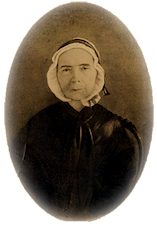
15th.—This was fast-day—a national fast proclaimed by our President. I trust that every church in the Confederacy was well filled with heart-worshippers. The Rev. Mr. Jones preached for us at Millwood. This whole household was there—indeed, the whole neighbourhood turned out.
We have been anxiously awaiting the result of an anticipated fight between Price and Fremont; but Fremont was superseded while almost in the act of making the attack. We await further developments.
“Pause and reflect upon the tenor and consequences of their acts…”—Woolsey family; From the journal of Eliza Woolsey Howland.
November 15, 2021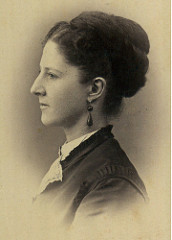
. . . “The officers told us the whole story of the battle and described terrible scenes to us of cold, suffering and death by drowning which we hope to forget…
While standing on the dreadful bank where our poor wounded were dragged up (and from which we plainly saw the rebel pickets across the river gathering in a little group), we understood fully and bitterly the wicked incompetency of whoever is responsible for this blunder…
Bright and early next morning we left for Darnestown on the return drive. There Captain Best, of Battery F, 4th Regular Artillery, was our host, and a most kind and attentive one, he and the other officers turning out of their tents for us and treating us like queens. Frank Crosby turned up there as Senior 1st Lieutenant, a position, Captain Best told us quietly, he worked fourteen years for in the regular service. Our tent was the salon and round our little fire that evening gathered Captain Best, General Hamilton of Wisconsin, Major Crane, Lieutenant Hazzard of Battery A, R. I. Artillery, Colonel Stiles of the 9th N. Y., Captain Perkins, Lieutenants Muhlenberg and Crosby, Dr. Wier of the Battery and others. They all came laden with refreshments from the sutler’s, and all seemed to enjoy the fun. . . Next day we called at Fort Muggins, lunched with the General, dined with Lieutenant Hazzard of Battery A, and left for Washington. We were stopped on the way for lack of countersign and marched to Tenallytown between files of soldiers! but managed to establish our innocence, and finally reached the Ebbitt house at 8 P. M.
At Darnestown we received the first official confirmation of the success of the great expedition and the capture of Port Royal. Captain Rodgers of the navy was selected by the Commodore as the first man to go on shore and run up the Stars and Stripes; and Dr. Bacon, who was one of the party, was sent inland with General T. W. Sherman’s proclamation, issued on his own responsibility, to the citizens of South Carolina, exhorting them to “pause and reflect upon the tenor and consequences of their acts,” etc. So deserted was the whole neighborhood of all but slaves that they had to go twelve miles to find a white man to hand the proclamation to, and he took it with oaths and under protest.”
William Howard Russell’s Diary.
November 15, 2021
November 15th.–Horse-dealers are the same all the world over. To-day comes one with a beast for which he asked £50. “There was a Government agent looking after this horse for one of them French princes, I believe, just as I was talking to the Kentuck chap that had him. ‘John,’ says he, ‘that’s the best-looking horse I’ve seen in Washington this many a day.’ ‘Yes,’ says I,‘ and you need not look at him any more.’ ‘Why?’ says he. ‘Because,’ says I, ‘it’s one that I want for Lord John Russell, of the London Times,’ says I, ‘and if ever there was a man suited for a horse, or a horse that was suited for a man, they’re the pair, and I’ll give every cent I can raise to buy my friend, Lord Russell, that horse.’” I could not do less than purchase, at a small reduction, a very good animal thus recommended.
War Diary of Luman Harris Tenney.
November 14, 2021
14th. Returned from Uncle’s. Letter from Fannie. Mrs. Helen Cobb, her mother-in-law and sister, Cousin Byron Harris and Miss Chidgey were in camp. Good visit.
“News is generaly favorable to our Army.”—Horatio Nelson Taft
November 14, 2021
THURSDAY 14
A cloudy day with rain tonight. Lieut Gaul is still with us waiting for his furlough. I was at the Pat office and saw the Comr, got not much satisfaction from him. Shall now look to the Sec’y for fulfilment of his promise. Have been at home most of the day. Julia is getting better slowly. All the rest of us are well. Letter from Mrs Brownson and the News is generaly favorable to our Army. Capt White called this evening on his way to Lyons recruiting.
______
The three diary manuscript volumes, Washington during the Civil War: The Diary of Horatio Nelson Taft, 1861-1865, are available online at The Library of Congress.
Downing’s Civil War Diary.–Alexander G. Downing.
November 14, 2021
Thursday, 14th–Our regular drills twice a day, company and regimental. No news.
Rebel War Clerk
November 14, 2021
NOVEMBER 14th.—The enemy, knowing our destitution of gun-boats, and well apprised of the paucity of our garrisons, are sending expeditions southward to devastate the coast. They say New Orleans will be taken before spring, and communication be opened with Cairo, at the mouth of the Ohio. They will not succeed so soon; but success is certain ultimately, if Mr. Benjamin, Gen. Winder, and Gen. Huger do not cease to pass Federal spies out of the country.
The results are good, as far as they go.—Woolsey family letters; Abby Howland Woolsey to G. & E.
November 14, 2021
8 Brevoort Pl., Thursday.
The details of the landing of the fleet at Port Royal fill all minds and mouths. I hope Georgy will have, from “our own correspondent” with the expedition, a full account of the landing of the 7th Connecticut, which seems to have been the first on shore. The sight of those vessels rounding to and sailing past, with sails spread, and the bands playing, and the men crying, instead of cheering, for joy! must all have been wonderful. The poor blacks coming down to the shore, with their little bundles in their hands, is the most touching of all. Every one asks me what I think now of the state of the country, and I say–the results of the expedition are good, as far as they go. We must have something more than a Hatteras fizzle this time.
Flags are shown from all the private houses today. Our’s is out again, and I dare say Broadway will be quite a sight.
Dinner at Mr. Seward’s.—Lincoln’s West-country stories.—William Howard Russell’s Diary.
November 14, 2021
November 14th.–Rode to cavalry camp, and sat in front of Colonel Emory’s tent with General Stoneman, who is chief of the cavalry, and Captain Pleasanton; heard interesting anecdotes of the wild life on the frontiers, and of bushranging in California, of lassoing bulls and wild horses and buffaloes, and encounters with grizly bears–interrupted by a one-armed man, who came to the Colonel for “leave to take away George.” He spoke of his brother who had died in camp, and for whose body he had come, metallic coffin and all, to carry it back to his parents in Pennsylvania. I dined with Mr. Seward–Mr. Raymond, of New York, and two or three gentlemen, being the only guests. Mr. Lincoln came in whilst we were playing a rubber, and told some excellent West-country stories. “Here, Mr. President, we have got the two Times–of New York and of London–if they would only do what is right and what we want, all will go well.” “Yes,” said Mr. Lincoln, “if the bad Times would go where we want them, good Times would be sure to follow.” Talking over Bull’s Run, Mr. Seward remarked “that civilians sometimes displayed more courage than soldiers, but perhaps the courage was unprofessional. When we were cut off from Baltimore, and the United States troops at Annapolis were separated by a country swarming with malcontents, not a soldier could be found to undertake the journey and communicate with them. At last a civilian”–(I think he mentioned the name of Mr. Cassius Clay)–”volunteered, and executed the business. So, after Bull’s Run, there was only one officer, General Sherman, who was doing anything to get the troops into order when the President and myself drove over to see what we could do on that terrible Tuesday evening.” Mr. Teakle Wallis and others, after the Baltimore business, told him the people would carry his head on their pikes; and so he went to Auburn to see how matters stood, and a few words from his old friends there made him feel his head was quite right on his shoulders.
A few days leave ordered “on account of my fatigue and prostration.–Journal of Surgeon Alfred L. Castleman.
November 14, 2021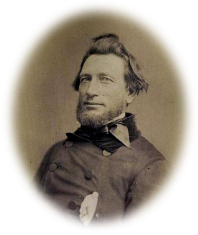
14th.–This morning our Brigade Surgeon ordered me to leave the hospital for a few days, on account of my fatigue and prostration. He said that a regard for my health demanded it, and I must go where I pleased. I rode to Arlington, the headquarters of General King. The Arlington house, I believe, is (unless confiscated) the property of Gen. Lee. It is a magnificent mansion, overlooking Georgetown, Washington, Alexandria, and miles of the beautiful Potomac. In a room of this house, said to have been a favorite room of General Washington, I found my old friend Surgeon _____, badly broken by the fatigue and excitement of the campaign. I called on him, in company with Doctor A_____, and after talking of his illness for half an hour, Doctor A. proposed to him to have my advice, to which he replied “Yes! if he will not medicate me too much.” I said, “Doctor, I will prescribe for you, and with a single dose will medicate every fibre of your body, and by a healthy shock, restore you to health at once.” With a look as if he thought me a hyena, he asked: “What do you mean to do with me?” “To take you out of this place and put you for thirty days under the care of your wife and family.” The poor suffering man grasped my hand, burst into tears and sobbed aloud, “My Colonel won’t consent to it.” For a moment, forgetting his religion, and not having the fear of military commanders before my eyes, “Your Colonel may go to the d-vil, and you shall have a furlough.” I rode immediately to medical headquarters in Washington, procured him the promise of a furlough as soon as his papers could be sent in, returned, informed him of it, and had the pleasure on my long night ride back to camp, of feeling that I had contributed something to the happines, and, perhaps, had saved the life of a good and worthy man. How easy for any man, however humble his position, to find opportunities of doing good, if he will only wear the “spectacles, of benevolence.”
After the vandalism I have witnessed in the destruction of property, in and about the houses of rebels and elsewhere, it was a pleasurable relief to find here, that General King, in the goodness of his always good heart, had enforced respect for the property and furniture. The garden, with its fences, is preserved, and the walls of almost every room in this immense old building, are covered with the rich paintings and old family pictures, left hanging when this favorite of rebeldom left his home. The garden is fine, but I think does not compare with that of Kalorama. The antique bureaus and side-boards calling up impressions of generations long passed away, are still tenants of the building; and the halls recall Scott’s fine description of the Halls of the Douglass, where the arms of the hunters, and the trophies of the hunt, mingled with the trappings of the warrior, constituted the attractive features of the chieftain’s forest home. Over the halls, and at every angle in the stairs, were the antlers of the elk and the red-deer fastened to the walls and nearly interlocking their branches over my head as I walked through. They were hung, too, with the arms of the hunter and the warrior. So perfectly does this position command Washington, that had the rebels there secretly collected a dozen mortars, they might have fired the city before a gun could have been brought to bear on them. Everybody is talking of a prospect of a move within three days, but the origin of the reports I know not; perhaps in the impatience of the army to be led forward.